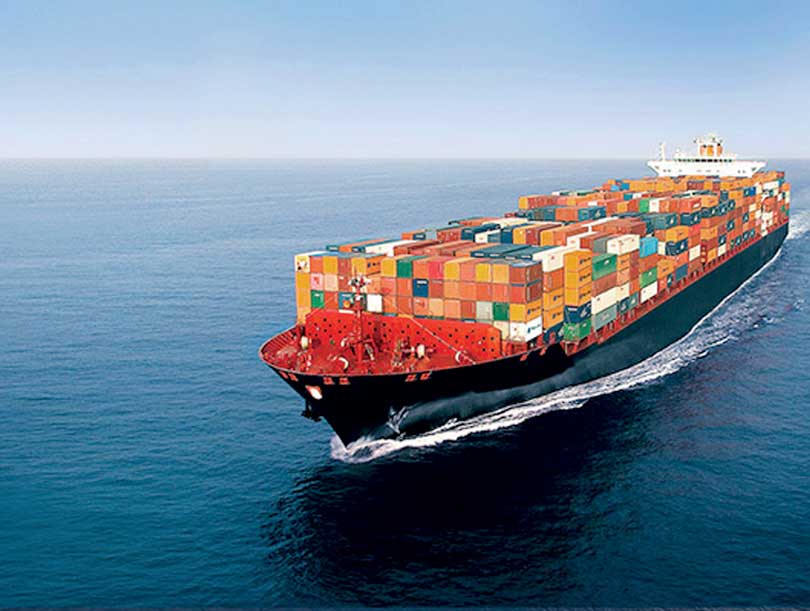Thursday Feb 19, 2026
Thursday Feb 19, 2026
Friday, 12 July 2024 01:06 - - {{hitsCtrl.values.hits}}

In addition to pressures of acquiring customers, there are also the stringent compliance regulations from these blocs
 The EU and the US disburse significant amounts of money under the banner of doing good, and often mandate local partners with no subject matter expertise to drive programs on mental and sexual health, child welfare, nutrition and employee rights that do more damage than good to the future of our nation. When these are married to local individuals and organisations that give scant regard to the nation, its people and future; the outcomes can be perilous
The EU and the US disburse significant amounts of money under the banner of doing good, and often mandate local partners with no subject matter expertise to drive programs on mental and sexual health, child welfare, nutrition and employee rights that do more damage than good to the future of our nation. When these are married to local individuals and organisations that give scant regard to the nation, its people and future; the outcomes can be perilous
 The European Union and the US are amongst preferred export destinations, but winning buyers from these markets do not come easy. In addition to pressures of acquiring customers, there are also the stringent compliance regulations from these blocs. Hypocrisy and geo-political powerplay is rife, but cracks are slowly but surely beginning to show.
The European Union and the US are amongst preferred export destinations, but winning buyers from these markets do not come easy. In addition to pressures of acquiring customers, there are also the stringent compliance regulations from these blocs. Hypocrisy and geo-political powerplay is rife, but cracks are slowly but surely beginning to show.
In addition to customs requirements, the EU states it is a priority to ensure products marketed in the region are safe for the environment and human health. In addition, they must be manufactured under responsible and acceptable conditions. Accordingly, manufacturers scamper to obtain numerous accreditations prescribed by European agencies, audited by more European companies so products could go in. To complete the cycle, EU and US-based NGOs setup offices in these ‘lesser developed’ producing nations to prescribe to populations how they must work and live. But does Europe really live by these same standards and values?
What equality amongst genders?
Gender equality, environment and governance are some of the key pillars of engagement from these institutions and Sri Lanka presents a significant point of interest in the region. Within the bloc, the EU has listed gender balance amongst directors in listed companies as a key facet, and by 2026 every listed company must have 40% female representation. Such mandates give rise to a plethora of new problems rather than solutions, but there is significant download from EU-based agencies to developing countries on this aspect. But, in reality, Asia should hardly be a concern.
Of the world’s 15 countries with highest proportion of women CEOs, six are from Asia with Singapore and Thailand out in front. Only seven EU countries make that list with four of them in the bottom five. The Business Standard reported recently only 8% of CEOs at large listed companies in the EU in 2023 were women. “Even in similarly-sized Scandinavian countries women are scarce in top roles, despite their progressive reputations,” the publication said. Earlier this year, Sweden’s main OMX Stockholm 30 index was left with one female CEO among 30 after a series of resignations among women in top roles. In the US, only 8% of CEO positions in the S&P 500 are held by women. It is a cardinal error to engineer talent and representation according to gender, but if the EU wants to do so it must first look within before dictating to others. If this is norm in the world’s “most progressive societies”, perhaps there are bigger realities to consider.
Growing list of double standards
On the side of the environment, there is little difference. In February this year, the US Green Building Council announced that China once again ranks first in the world amongst Top 10 countries and regions for LEED building certification. Last year, 1,563 LEED green building projects, representing more than 24 million gross square meters of space, were LEED-certified in Mainland China. Turkey, Spain and Italy are the only European Countries on that list.
Governance in the EU doesn’t fare much better, with reports of numerous European Parliamentary candidates involved in various scandals, power wrangling and hidden identities of political funders. The evils that take place here also take place there, but just that the western cover up works much better. Also, it boils down to bargaining power which Sri Lanka unfortunately sits short of by its own doing.
The emerging right
At the same time the EU is undergoing change, and this can been seen more clearly after preliminary results for European Parliament elections. Though centrist parties claiming to be “pro-European and pro-rule of law” says they are still in charge, there is significant growth in support for the far-right movement. It has been a good spell for parties campaigning against immigration and the EU’s Green Deal on measures regarding climate change and sustainability. Voters in France dealt a massive blow to President Emmanuel Macron who called for snap elections in the lower house as right-wing parties took the lead in polls. Similar results were witnessed in Germany and several other countries.
The underlying reality is that the so-called developing nations, including Sri Lanka, must be measured with what they accept from the Western bloc. It is a case of blind leading the blind, but there sits the factor of disproportionate power by design. Whilst it is impossible for nations to simply pull a plug and reverse fortunes, it is imperative to strive for a better balance. More attention must be paid on control exercised over local communities, government and business through vested agencies and Non-Governmental Organisations (NGO) under the guise of developmental assistance. It is in the West’s interests to maintain the so-called ‘global south’ in the south. These are achieved through targeted project funding and programmes with vested interests, and must be dealt with tactfully. But naturally this becomes difficult with corruption.
Change and charge is no easy measure
However, this is easier for nations like China due to their sheer volume and the level of control. But for smaller but critical markets like ours, more method must come into play. As misconstrued by some, the argument is not to do away with NGOs, but to ensure that foreign funds are entertained and channelled for the right purpose, with stringent audits on spend, partnerships, objectives and outcomes. Development assistance must not only be seen to come with no strings attached, but felt such in the corridors of power and trade – albeit utopian. The EU and the US disburse significant amounts of money under the banner of doing good, and often mandate local partners with no subject matter expertise to drive programs on mental and sexual health, child welfare, nutrition and employee rights that do more damage than good to the future of our nation. When these are married to local individuals and organisations that give scant regard to the nation, its people and future; the outcomes can be perilous. Government and civil society need to be alert to that. There is very little accountability at present on the side of development agencies and both foreign and local NGOs. The good are few and far between. A malevolent blind is leading the wilfully blind; we can no longer afford to be blind to that reality.
(The writer is a psychologist who has engaged with several development programs in Sri Lanka and Africa targeting underserved communities.)